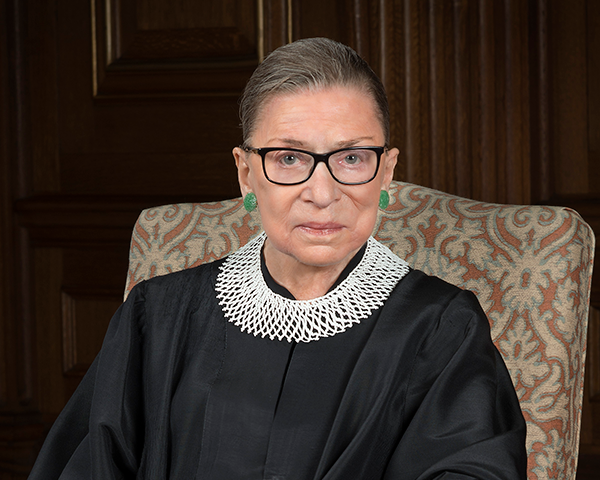Afternoon Briefs: Ginsburg stayed busy before her death; report recommends end to routine traffic stops

U.S. Supreme Court Justice Ruth Bader Ginsburg.
Ginsburg participated in SCOTUS cases through at least Sept. 11
U.S. Supreme Court Justice Ruth Bader Ginsburg remained busy in the weeks before her death Sept. 18. She reportedly spent a few days in the hospital the previous week and returned home Sept. 11—the same day that the Supreme Court issued an order list in pending matters. Besides conferring in cases, she wrote notes to friends and planned to officiate a wedding on the day that she died. Ginsburg’s chambers informed the groom two days before her death that the wedding date would have to be pushed back. (CNN)
Report says cops should end routine traffic stops
The New York Police Department should refrain from routine traffic enforcement, according to a report by New York Attorney General Letitia James’ special investigations and prosecutions unit. If officers remain involved in traffic enforcement, they should not make arrests for open warrants related to minor offenses, the report said. (The Associated Press, the New York Post, New York attorney general press release)
Law firm is accused of taking kickbacks for pharmacy referrals
Massachusetts Attorney General Maura Healey has filed a lawsuit accusing the Keches Law Group of accepting more than $90,000 in kickbacks to refer clients to an online pharmacy. Healey claims that the law firm did not disclose its financial interest in the referrals to clients and did not obtain their informed consent. The law firm characterized the referrals as a “short-term marketing arrangement” and denied that the conduct was unfair or deceptive. In June, the pharmacy settled claims that it recklessly dispensed opioid prescriptions and paid law firms for referrals. (Law360, MassLive.com)
Google parent company settles lawsuits over handling of sex harassment
Google’s parent company, Alphabet Inc., has agreed to settle consolidated shareholder lawsuits alleging that it covered up lucrative severance packages given to those accused of sexual harassment. The company will ban exit packages for those accused of sexual harassment or retaliation and will commit $310 million to diversity programs. Employees won’t be forced into private arbitration, and they will be allowed to discuss underlying facts of cases. (Reuters, the New York Times, the proposed settlement)



